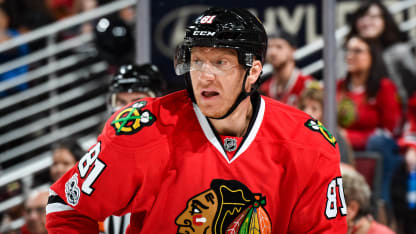"I don't think you replace [Hossa], because he's a special player," said Quenneville, who's been the coach during Hossa's eight seasons in Chicago. "We don't want to say we're going to go look for a Marian Hossa. We're very fortunate the way we did acquire him [as a free agent in 2009] and how he's played when we did have him, so, it's tough to say … but I don't think you're going to find him [again], unfortunately."
Hossa, 38, has 1,134 points (525 goals, 609 assists) in 1,309 games with the Blackhawks, Ottawa Senators, Atlanta Thrashers, Pittsburgh Penguins and Detroit Red Wings. He ranks 34th in NHL goals, 80th in assists, 54th in points, and 60th in games played. He has 149 points (52 goals, 97 assists) in 205 Stanley Cup Playoff games, including 73 points (21 goals, 52 assists) in 107 postseason games with the Blackhawks, winning the Stanley Cup in 2010, 2013 and 2015.
"He was a huge part of the Stanley Cup victories, so it's a huge loss, obviously," Bowman said. "It's a little bit early to predict what we're going to do. I think we've got a lot of things we've got to sort through. It's certainly been a busy couple days as we look at different options."
The Blackhawks will likely seek relief against the NHL salary cap, expected to be about $75 million, by placing Hossa on long-term injured reserve (LTIR). His contract has four years remaining and carries an annual salary-cap charge of $5.275 million, according to CapFriendly.com.


















